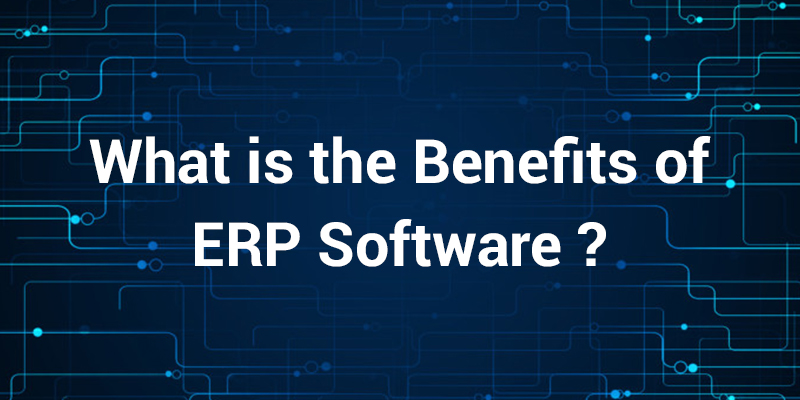What are the benefits of ERP software? ERP streamlines, consolidates and automates your business processes, so the immediate impacts include increased productivity and efficiency, reduced operational costs and more accurate reporting. All these make your business poised for sustained growth. We’ve outlined this article in a way that’ll help you learn more of ERP’s advantages, then you get an overview of the top ERP systems in the market today to guide your purchase decision.
In today’s global business landscape, retaining your edge means being able to carry out your operations faster and better than your competitors. To do this, you need to keep up with the rapid innovations in technology and upgrade your processes according to the demands of the changing economy. One way of kick-starting your company’s shift to becoming a multifaceted business would be the implementation of an Enterprise Resource Planning (ERP) program.
The purpose of ERP software is to combine all the programs you need for different business processes in one convenient platform. With its user-friendly interface, integrated applications, and highly customizable setup, an ERP platform can help you in developing a new business foundation that extends across traditional boundaries and optimizes a company’s operational capabilities.

Among the key features of ERP software are:
- Inventory Management
- Financial Management
- Customer Relationship Management (CRM)
- Human Resource Management (HRM)
- Supply Chain Management (SCM)
- Compliance Monitoring
- Customization and Integration Capabilities
- Intelligent Data Analysis
- Automated Reporting
- Project Management
- IT Optimization
- Business Intelligence
Benefit of using ERP System
Increased Productivity and Efficiency
Back-office duties take your time and attention away from actually running your business. The purpose of ERP software is to help you quickly accomplish these responsibilities to increase your operation’s productivity and efficiency. With this technology, you can automate tedious tasks such as compiling reports, updating inventory information, and monitoring your sales while reducing the risk of human error. On top of that, all these information are recorded and compiled in your dashboard, so you can get a glance of your business’ performance with just a few clicks.
Reduced Operational Costs
Delays and disruptions in your business operations can compromise your company’s reputation as well as result in losses in the long-run. Through an ERP system, you can merge processes across departments, making it easier to anticipate and identify problems as well as come up with ways to resolve them quickly.
Faster and More Accurate Reporting
Data integrity is an essential part of any business operation. To help you ensure the accuracy and consistency of all the information you store in your database, ERP systems are geared with business intelligence tools and machine learning capabilities. These allow you to use advanced filters and real-time analytics to sift data for inconsistencies, analyze information, and generate insights on performance, so you can make the necessary adjustments to your operations efficiently and effectively.
Integrated Information Repository
Accessible on-premise or via the cloud, these platforms often serve as an integrated information repository for many companies. It stores data coming from different devices and organizes them according to the requirements of the users. From inventory details and sales reports to employee information and customer files, all the documents that you need for your operations can be housed within this system and can be accessed whenever you wish. This saves you and your employees time whenever you need to pull files for specific purposes, especially when you are coordinating with different departments.
Flexible Business Operations
ERP software is not a one-size-fits-all solution. It is a highly configurable system that supports multiple integrations and third-party applications. This way, you can easily tailor it to the unique needs of your company and even have it adapt to the changing requirements of your growing business.
Reinforced Data Security
ERP programs allow you to access information from anywhere and at any time you desire, but this doesn’t mean that you are compromising the security of your data. These software solutions are often equipped with firewalls, restriction controls, and ransomware prevention, so you can safeguard confidential data without limiting user access to other information. ERPs also have features that allow you to pinpoint unauthorized activity within your system and provides insights on how to proceed with these issues.
Simplified Regulatory Compliance
Regulatory compliance is an issue that businesses across many industries are extremely familiar with. Industry standards change from time to time, making it difficult to keep track of if you do not constantly monitor it. To help you stay up-to-date on various regulatory processes, most ERP software have compliance reporting features that monitor any changes in compliance protocols and notify users in real time.

